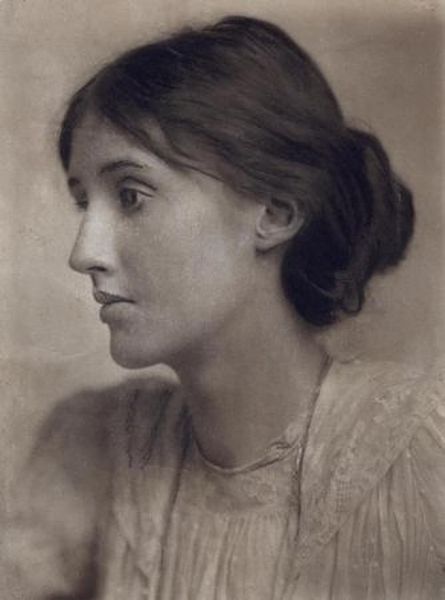
To the Lighthouse and Mrs. Dalloway are my go-to novels whenever I need to feel more like myself again. I’m not able to say why, exactly, and hope that one day the connection that I feel to these works will reveal itself. To the Lighthouse, in particular, is a book that thrills me. Even now, when I’m only typing the title, I feel a special thrill go through me as if something eternally significant is about to happen.
The works of Virginia Woolf are certainly not children’s literature, and they likely would not be called mythic literature by many people (with the exception, perhaps, of Orlando). However, a reading of Virginia Woolf: A Writer’s Diary, extracts of Woolf’s diary written over a period of 27 years (posthumously edited and published by her husband, Leonard Woolf) reveals that her journey as an author was a mythic one.
To the Lighthouse is an autobiographical novel in three acts. Act 1 depicts the life of a large family at their seaside summer retreat. There are visitors, servants, children, the feminine/masculine duo of Mrs. and Mr. Ramsay who are based on Woolf’s own parents, and who embody all that she admired and feared in the originals. Discord at the holiday home is provided by Mr. Ramsay, all the harmony and comforts (both tangible and otherwise) are provided by the incomparable Mrs. Ramsay. Act 1 ends when summer is over and the family returns to their main home in the city.
Act 2 covers a period of time during which the Ramsay’s summer home is left empty, tended only by the local hired help. If I had to choose a passage of writing that is my favorite, it is this: 10 years of a once vibrant house simply breathing, waiting.
From a diary entry dated Friday April 30th, 1926:
Yesterday I finished the first part of To the Lighthouse, and today began the second. I cannot make it out–here is the most difficult abstract piece of writing–I have to give an empty house, no people’s characters, the passage of time, all eyeless and featureless with nothing to cling to: well, I rush at it, and at once scatter out two pages. Is it nonsense, is it brilliance?
The passage represents flux, the passage of time, inevitable decay, mortality, loss . . .
From Margaret Drabble’s introduction to the Oxford World’s Classics edition of To the Lighthouse: “The story itself is very simple, so simple that it almost vanishes . . .”
One of the ways that To the Lighthouse can be interpreted is as a study of male versus female qualities and values (though the prose-poem nature and depth of the writing makes a mockery of such a one-dimensional analysis). In this light, the empty house of Act 2 can be seen as a lack of wholeness, the void that results when both the male and female energies of a household are missing. The thinness of every day life when the family finally returns to the house in Act 3, without critical members of the family, shores up the argument.
I enjoyed To the Lighthouse as a very young person, though I really couldn’t say what it was about, other than a family’s friendships, loves, and tragedies. What else is there?
From Act 2 of To the Lighthouse, “Time Passes”:
The house was left; the house was deserted. It was left like a shell on a sand-hill to fill with dry salt grains now that life had left it. The long night seemed to have set in; the trifling airs, nibbling, the clammy breaths, fumbling, seemed to have triumphed. The saucepan had rusted and the mat decayed. Toads had nosed their way in. Idly, aimlessly, the swaying shawl swung to and fro. A thistle thrust itself between the tiles in the larder. The swallows nested in the drawing-room; the floor was strewn with straw; the plaster fell in shovelfuls; rafters were laid bare; rats carried off this and that to gnaw behind the wainscots. Tortoiseshell butterflies burst from the chrysalis and pattered their life out on the window-pane. Poppies sowed themselves among the dahlias; the lawn waved with long grass; giant artichokes towered among roses; a fringed carnation flowered among the cabbages; while the gentle tapping of a weed at the window had become, on winters’ nights, a drumming from sturdy trees and thorned briars which made the whole room green in summer.

2 responses to “Virginia Woolf’s Mythic Journey”
What a lovely reminder of this book. I read it years ago, but don’t think I was ready for it. I’m definitely going to give it a second read now. Thanks!
I’m glad you’re going to give it another try. I definitely read it differently now, as a woman of Mrs. Ramsay’s age, than I did years ago.